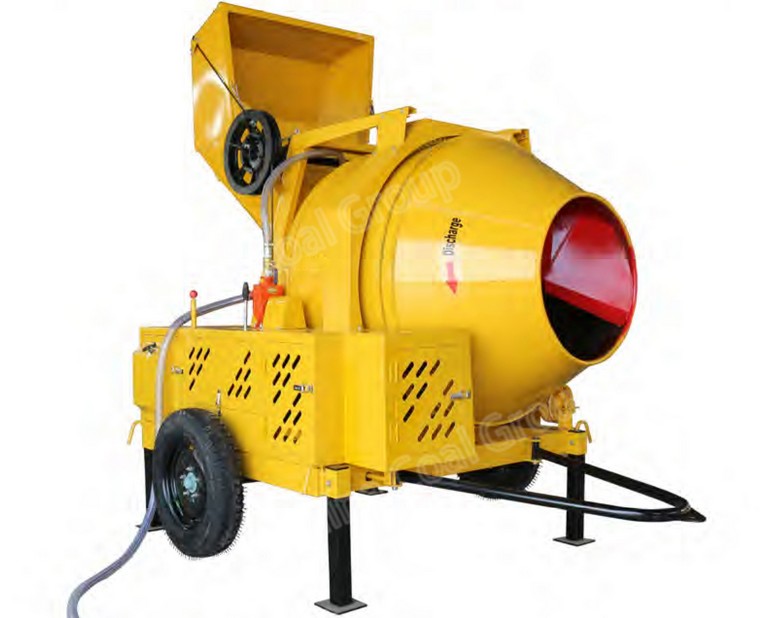

What are the tips for choosing a Tilting Drum Concrete Mixer?
Choosing the right Tilting Drum Concrete Mixer is important to ensure efficient and effective concrete mixing for construction projects. Here are some tips to help you make an informed decision:

Determine Your Needs: Assess the scale of your construction projects and the volume of concrete you need to mix. Consider whether you need a portable mixer for smaller projects or a larger one for commercial applications.
Mixer Capacity: Tilting Drum Concrete Mixers come in various capacities. Choose a mixer with a capacity that aligns with your project requirements. Avoid overestimating the capacity, as larger mixers might lead to wastage if not used to their full potential.
Type of Concrete: Consider the type of concrete you'll be mixing. Some mixers are better suited for specific types of concrete, like lightweight or heavy-duty mixes. Make sure the mixer you choose can handle the consistency and volume of concrete you'll be working with.
Mixing Speed: The mixing speed affects the quality and efficiency of the mixing process. Higher mixing speeds are better for homogeneous mixes, but too high a speed might lead to excessive wear and tear on the machine. Look for a mixer with adjustable speed settings.
Power Source: Tilting Drum Concrete Mixers can be powered by electricity, diesel, or petrol. Choose a power source that's readily available in your work area and suits your operational preferences. Electric mixers are often preferred for indoor projects due to their lower emissions and noise levels.
Mobility: Consider whether you need a mobile or stationary mixer. Mobile mixers are equipped with wheels, making them easier to move around the construction site. This is especially important if you have multiple pouring points.
Tilting Mechanism: The tilting drum is a key feature of these mixers. Check the tilting mechanism for durability and ease of operation. A sturdy and reliable tilting mechanism ensures that you can easily pour the mixed concrete where needed.
Durability and Build Quality: Since concrete mixing can be demanding on equipment, opt for a mixer with robust construction and durable materials. Stainless steel or heavy-duty steel construction is preferable.
Safety Features: Safety is paramount. Look for mixers with proper safety features such as emergency stop buttons, protective covers, and guards. These features prevent accidents and protect the operator.
Maintenance and Cleaning: A mixer that's easy to clean and maintain will save you time and effort. Detachable parts and accessible components make maintenance tasks more manageable.
Brand and Reputation: Choose mixers from reputable manufacturers known for producing high-quality construction equipment. Established brands usually offer better customer support, spare parts availability, and warranties.
Budget: Cost is a significant factor. While you shouldn't compromise on quality, compare prices among different brands and models. Consider the overall value the mixer provides in terms of features, durability, and performance.
Reviews and Recommendations: Read reviews from other users and seek recommendations from colleagues in the construction industry. Real-world experiences can provide insights that might not be apparent from specifications alone.
By considering these tips, you can choose a Tilting Drum Concrete Mixer that suits your construction needs, delivers reliable performance, and contributes to the efficiency of your projects.